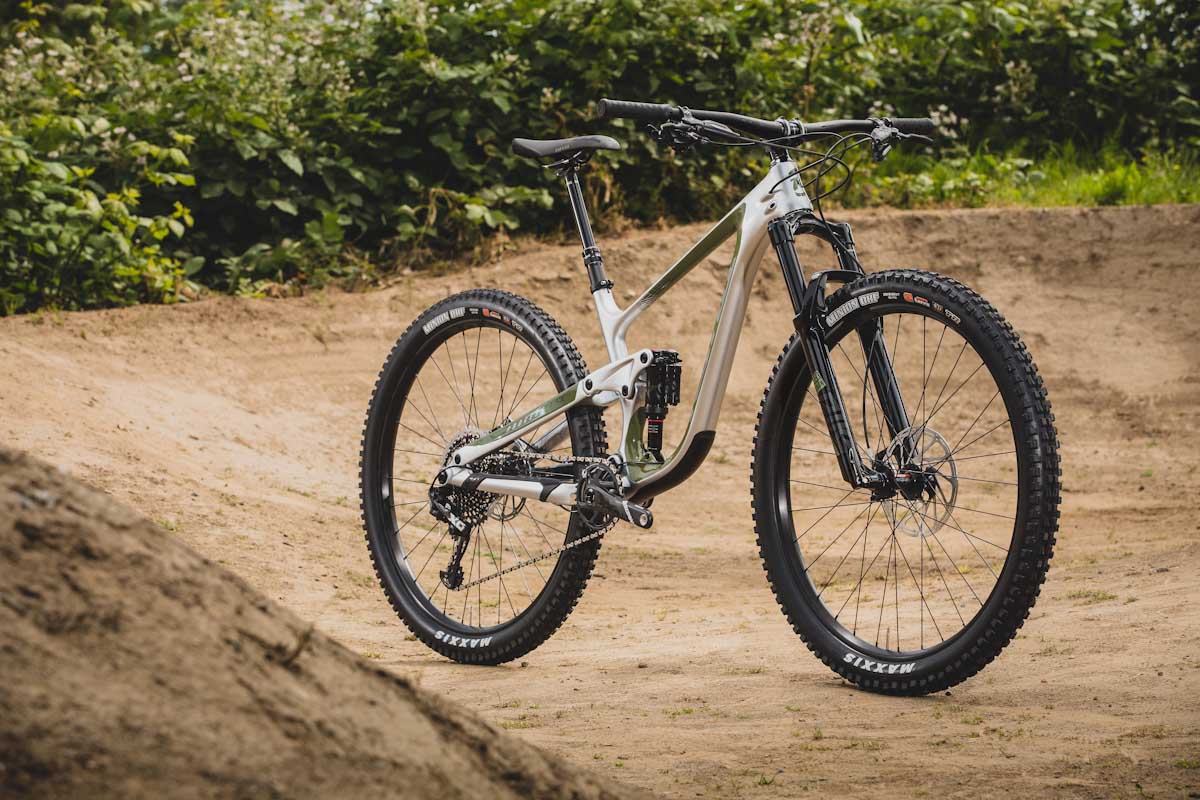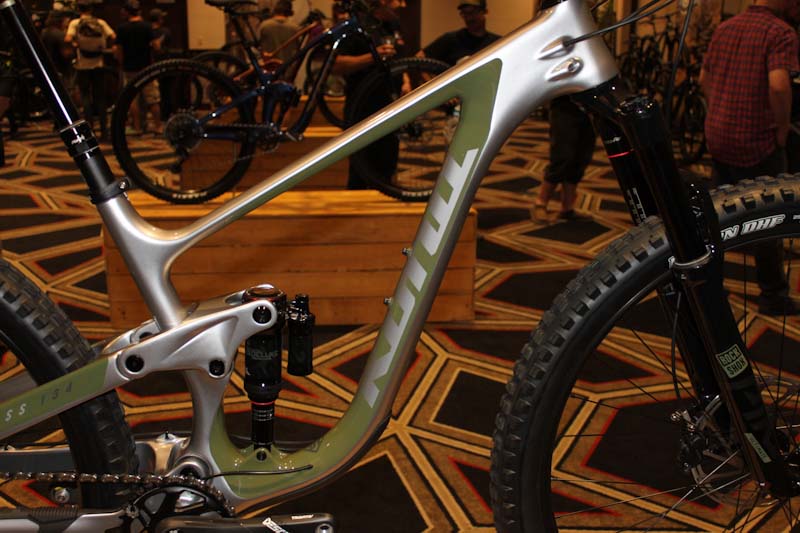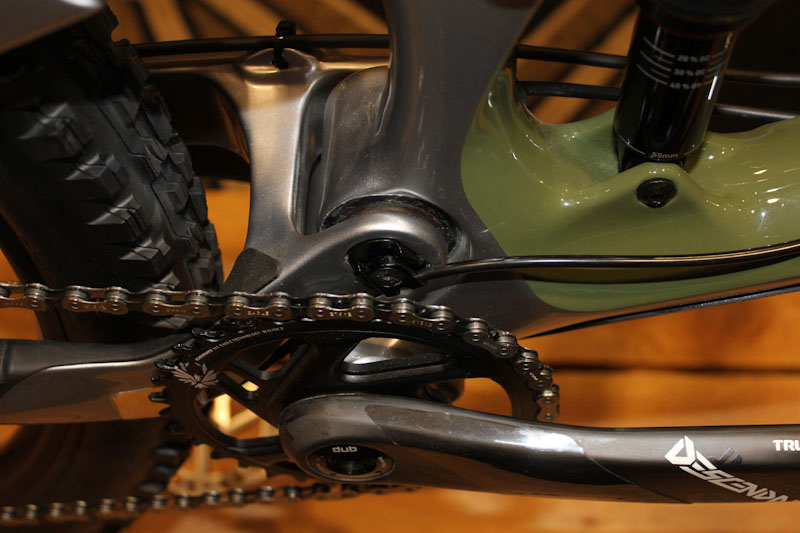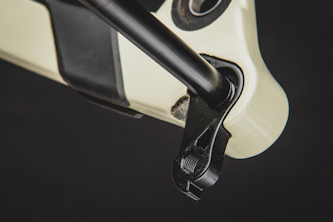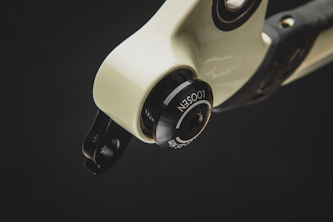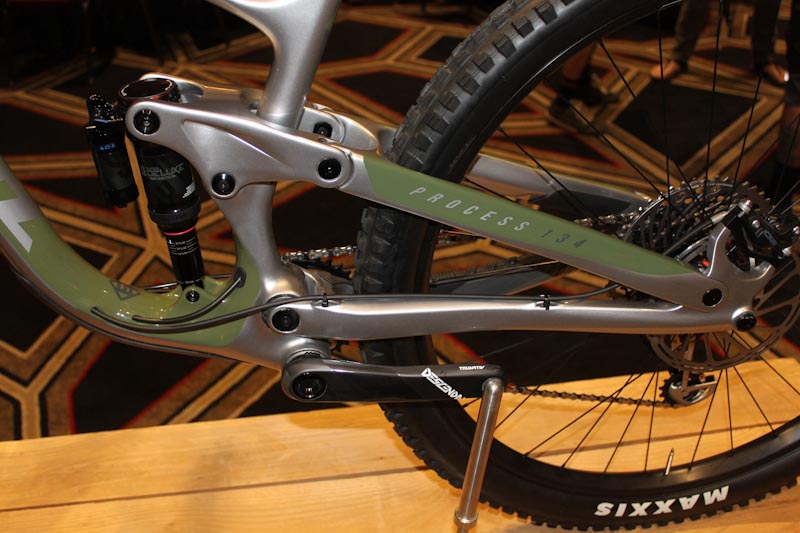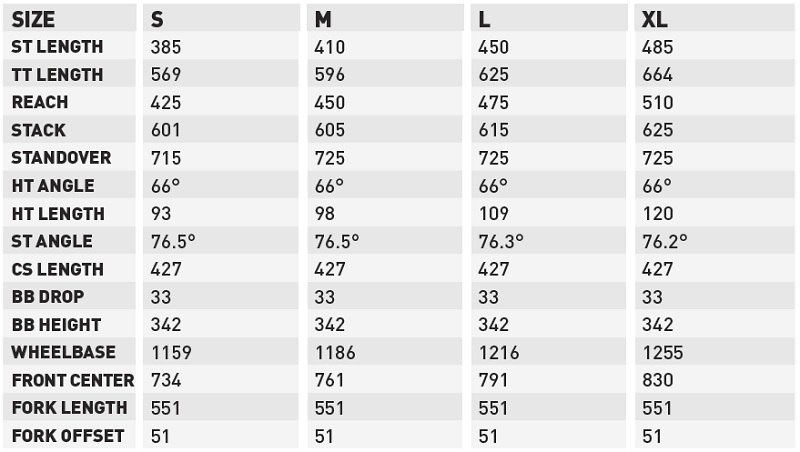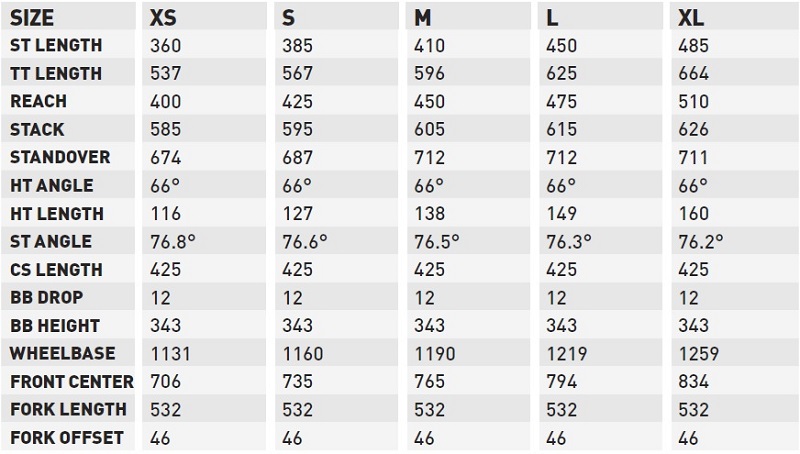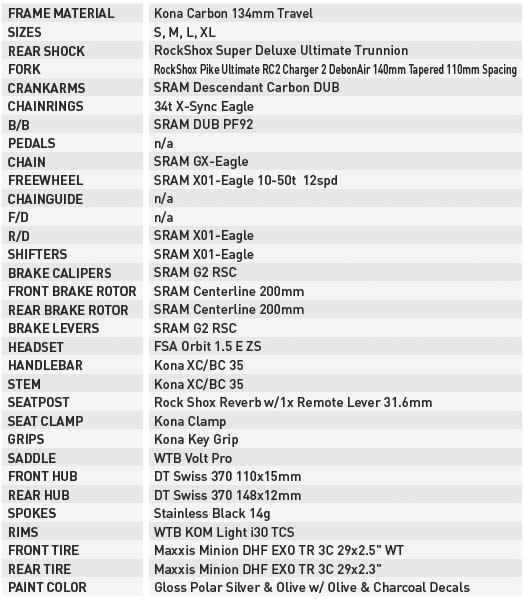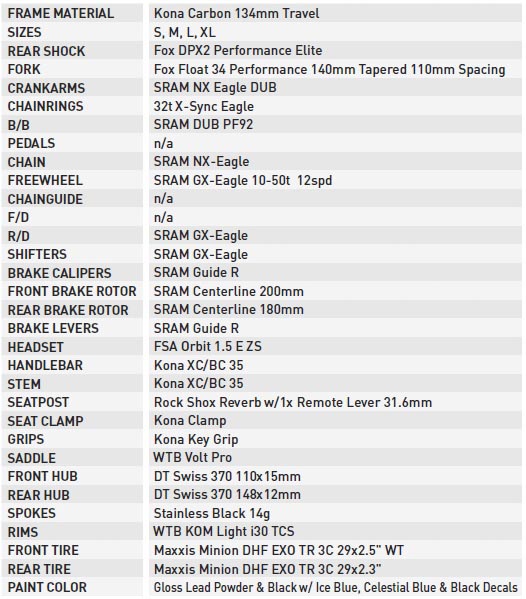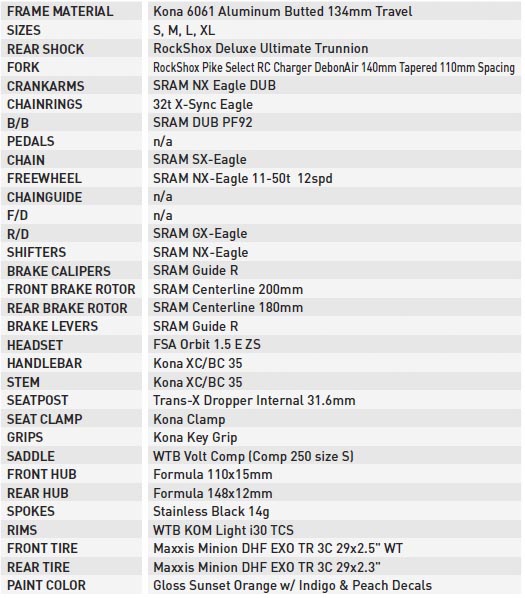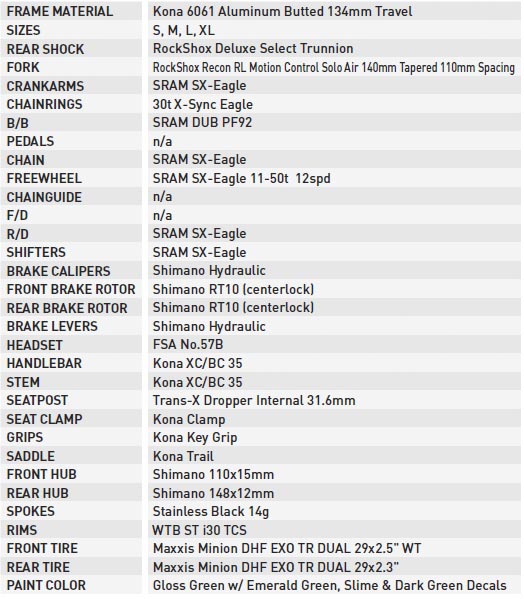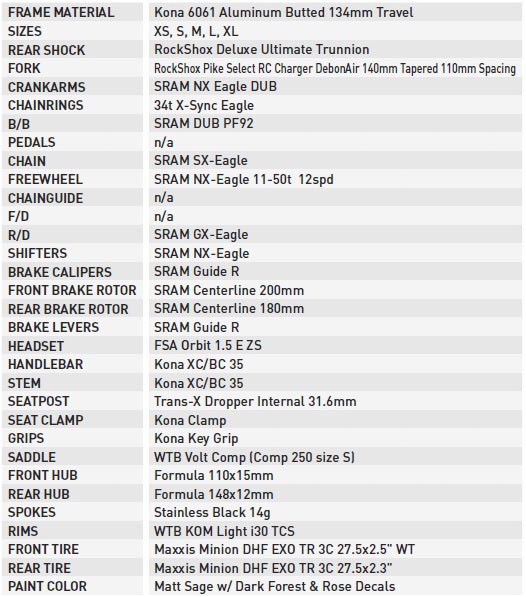Kona’s all-new 2020 Process 134 is a highly versatile trail slayer that was designed to combine the best attributes of the Process 111’s and their longer-legged siblings, the 153’s. 134mm of rear travel, 140mm forks, 29” (or 27.5”) wheels, modern frame geometry and a finely tuned linkage makes for a bike that will provide a stable yet playful ride on almost any trail network.
The 2020 Process 134 will be available as 29ers in carbon only, while the aluminum models are offered in both 29” and 27.5”. Carbon frames are available in S/M/L/XL sizes, and the aluminum 27.5” bikes offer an XS frame for smaller riders.
2020 Kona Process 134 frame details:
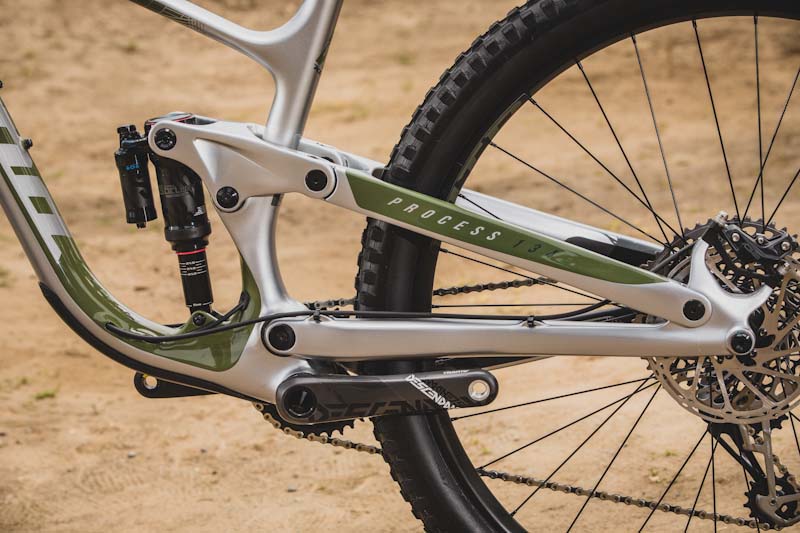
Aside from the complete redesign of the overall slimmer frame, perhaps the biggest news about the new carbon Process 134’s is that they are entirely made of carbon. Previous models used an aluminum chainstay, but Kona decided to jump to full carbon construction. This did result in a marginal reduction of rear end stiffness, but saved a bit of weight.
A quick glance reveals Kona’s efforts to slim down the Process 134. The new top tube is noticeably thinner top-to-bottom, and Kona straightened out the frame’s bends a little to ensure they didn’t sacrifice strength or stiffness (except for those slightly softer carbon chainstays). To improve heel clearance, the new 134’s seatstays are now a bit narrower than before.
Compared to the hard-charging Process 153 the lighter weight, more versatile 134 has thinner rear stays and uses smaller pivot bearings. Its stack height is 5mm lower than the Process 153, to allow this well-rounded bike to be set up for aggressive XC or trail rides.
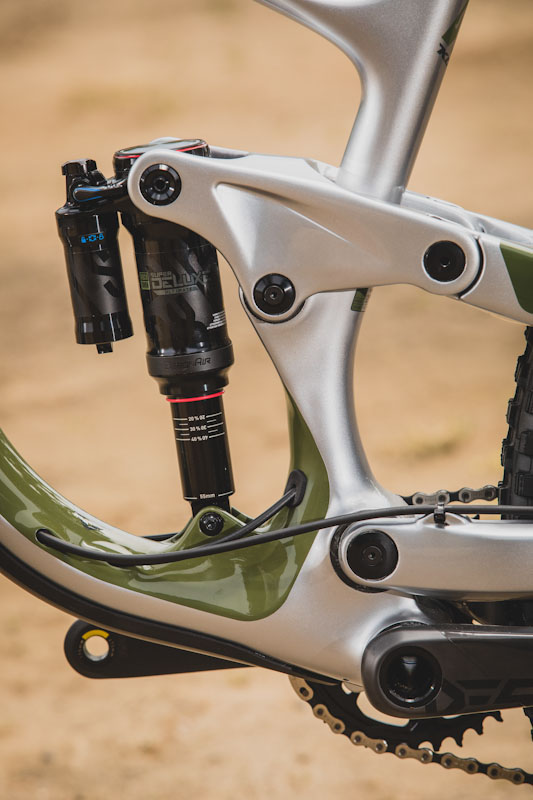
The new Processes have seat masts that arc backwards, however they can still fit suitably long dropper posts. The bikes come stock with 125/150/170 or 175/200mm posts for S/M/L/XL frame sizes. That said, a few Kona employees (riding small and large frames) have run longer posts with no issues. Kona also straightened that seat mast bend to ensure that the effective seat tube angle of the bike remains more consistent no matter how high or low your saddle needs to be.
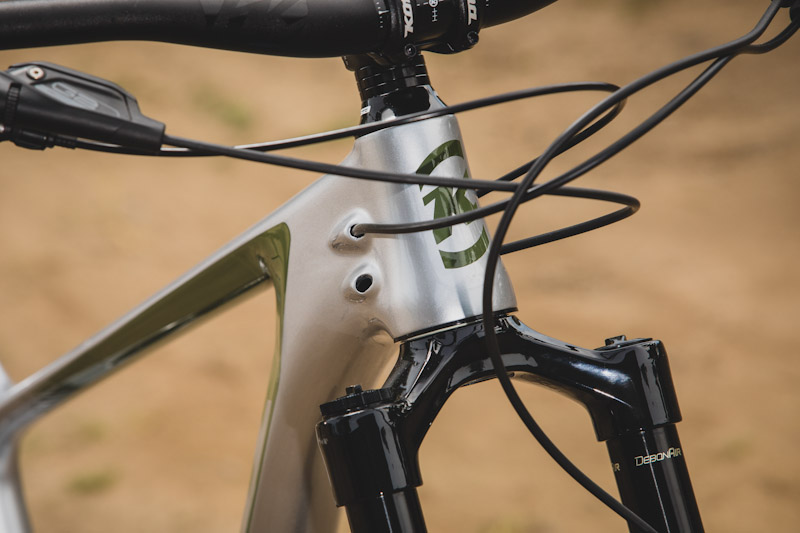
The new carbon Process 134s feature fully tubed internal cable routing (save for the brake line on the non-drive side chainstay), and to the delight of international buyers, Kona included two ports on both sides of the head tube. If you’re from any country where people run their brakes ‘moto style’, you can route your cables properly in this frame!
Kona’s engineers also made efforts to ensure your cables and chain won’t rub or chip away at your frame. Thanks in part to a cable clamp that rotates on the lower pivot, the derailleur cable doesn’t move in and out of the chainstay as the suspension compresses.

The chainstay yoke was redesigned to drop away sharply behind the BB, reducing potential contact from bouncing chains. They’ve also added a new chain protector with the numbers ‘134’ neatly embossed into the noise-reducing teeth, and a small metal plate to prevent damaging the carbon chainstay in case you suck your chain into your front ring.
The aluminum Process frames retain mostly external cable routing, but the derailleur cable does run through the chainstay and there is a port on the seat mast for the internal dropper post cable.
Kona redesigned the 134’s derailleur hanger as well, which now boasts two-piece design. The replaceable aluminum hanger is attached to the inside of the chainstay by an opposite threaded end cap; the axle then threads into the cap. The opposing threads ensure the hanger never comes loose.
The 2020 Processes use 185x55mm rear shocks, rear axles are Boost 148mm spaced, and the bottom brackets are PF92’s with integrated ISCG05 tabs. The carbon rear ends can fit up to 2.5” tires while the aluminum 27.5” version can run a 2.6” tread (or larger depending on the tire). The brake post-mounts are 140mm, as riders in mellower areas may choose to trim a few grams with a smaller rear rotor.
Suspension:
Kona designed the new Process 134 to be more progressive than the 153, which helps the rider maximize the bike’s travel without harshly bottoming it out. Their linkage-driven single pivot platform also provides a lot of mid-stroke support (it really does, check out my review), which keeps the bike high in the travel while climbing and feeling poppy when pumping down flowy, undulating descents. The linkage produces minimal chain growth, and retains good pedalling efficiency at any point in the travel, making it easy to power out of corners.
When choosing component specs, Kona does their best to provide good rear shocks that you won’t likely feel the need to upgrade. On that note if you’re a fan of coil shocks, the Process can handle them quite well if you adjust the sag appropriately. Up front, the forks on lesser models can easily be upgraded with better dampers.
Frame Geometry:
Frame geometry for the aluminum and carbon niners is identical, while the aluminum 27.5’s are of course a bit different. See the charts below for all the numbers on both wheel sizes.
29er Geo:
27.5″ Geo:
Now let’s take a look at the Process 134 model lineup…
2020 Process 134 Carbon 29”:
Process 134 CR/DL 29- $5,999 USD
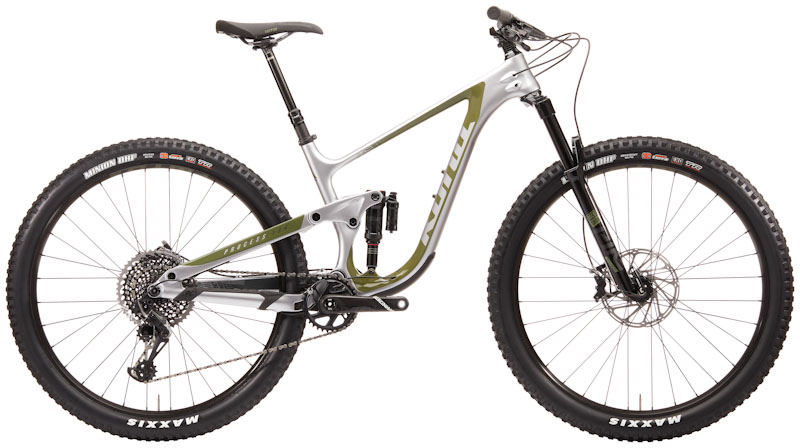
Process 134 CR 29- $4,999
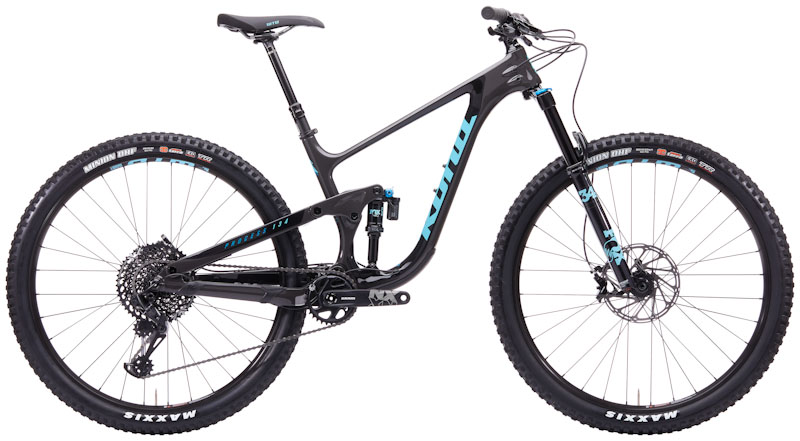
2020 Process 134 Aluminum 29”:
Process 134 DL 29- $3,699
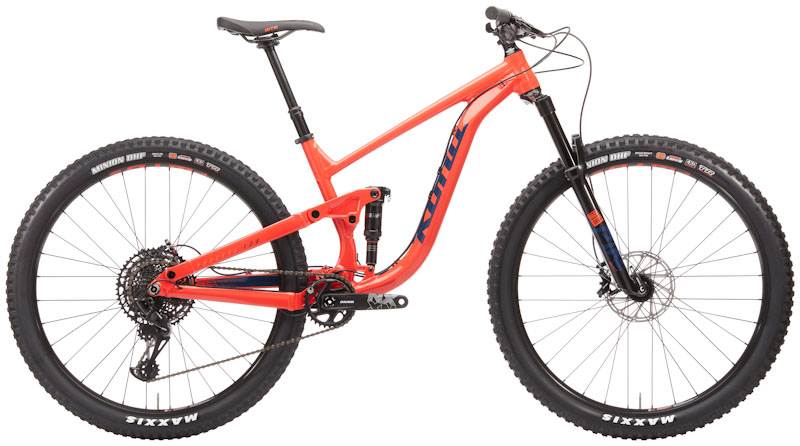
Process 134 29- $2,399
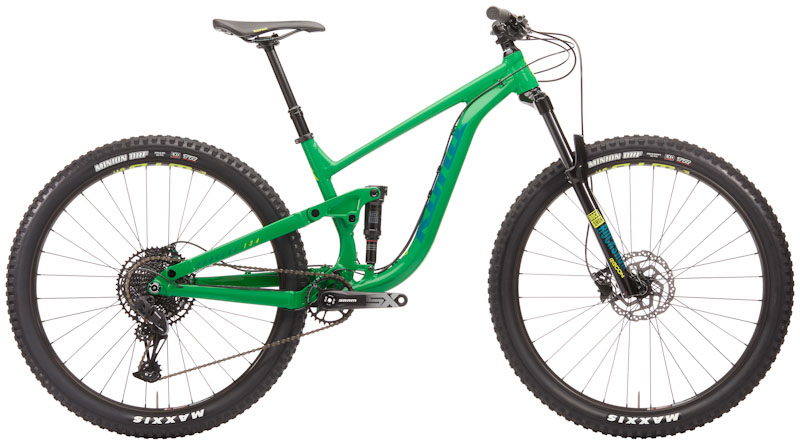
2020 Process 134 Aluminum 27.5”:
Process 134 DL 27.5”- $3,699
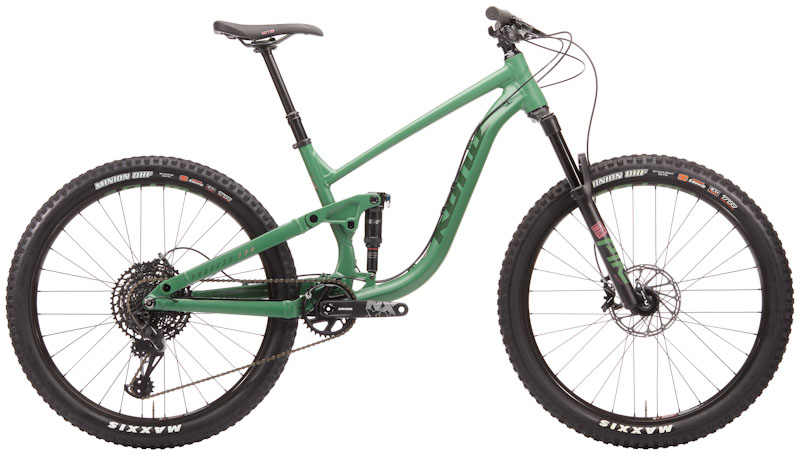
Process 134 27.5” – $2,399
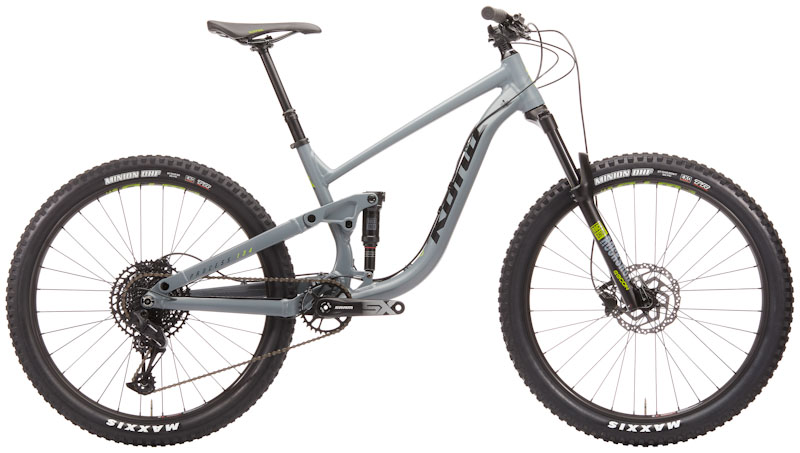
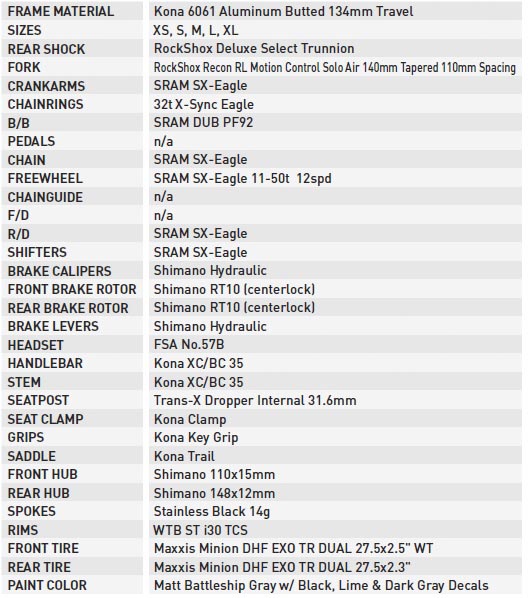 The Process 134 29 will also be sold as a frame only (with rear shock and rear axle) in both carbon and aluminum. The 134 CR DL 29 with a RockShox Super Deluxe Ultimate rear shock retails for $3299. The aluminum 134 DL 29 with a Deluxe Ultimate shock sells for $1699.
The Process 134 29 will also be sold as a frame only (with rear shock and rear axle) in both carbon and aluminum. The 134 CR DL 29 with a RockShox Super Deluxe Ultimate rear shock retails for $3299. The aluminum 134 DL 29 with a Deluxe Ultimate shock sells for $1699.
